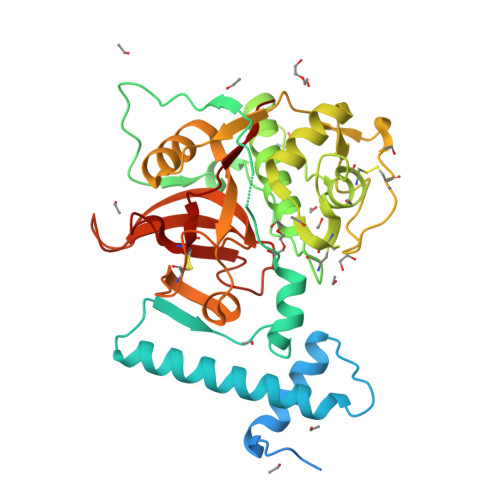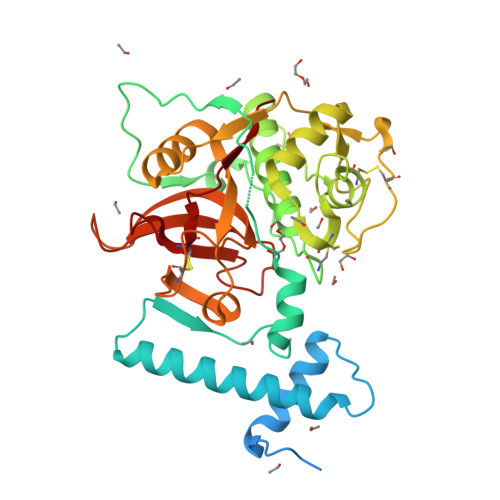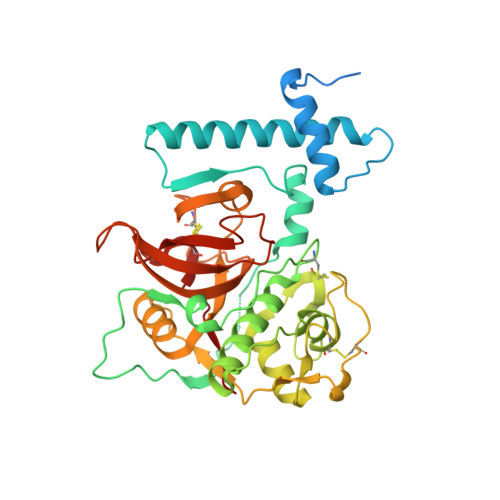Structure-guided protein engineering of human cathepsin L for efficient collagenolytic activity.
Choudhury, D., Biswas, S.(2021) Protein Eng Des Sel 34
- PubMed: 33825882
- DOI: https://doi.org/10.1093/protein/gzab005
- Primary Citation of Related Structures:
6JD0, 6JD8 - PubMed Abstract:
Engineering precise substrate specificity of proteases advances the potential to use them in biotechnological and therapeutic applications. Collagen degradation, a physiological process mediated by collagenases, is an integral part of extracellular matrix remodeling and when uncontrolled, implicated in different pathological conditions. Lysosomal cathepsin-K cleaves triple helical collagen fiber, whereas cathepsin-L cannot do so. In this study, we have imparted collagenolytic property to cathepsin-L, by systematically engineering proline-specificity and glycosaminoglycans (GAG)-binding surface in the protease. The proline-specific mutant shows high specificity for prolyl-peptidic substrate but is incapable of cleaving collagen. Engineering a GAG-binding surface on the proline-specific mutant enabled it to degrade type-I collagen in the presence of chondroitin-4-sulfate (C4-S). We also present the crystal structures of proline-specific (1.4 Å) and collagen-specific (1.8 Å) mutants. Finally docking studies with prolyl-peptidic substrate (Ala-Gly-Pro-Arg-Ala) at the active site and a C4-S molecule at the GAG-binding site enable us to identify key structural features responsible for collagenolytic activity of cysteine cathepsins.
Organizational Affiliation:
Crystallography and Molecular Biology Division, Saha Institute of Nuclear Physics, 1/AF Bidhannagar, Kolkata 700 064, India.





















